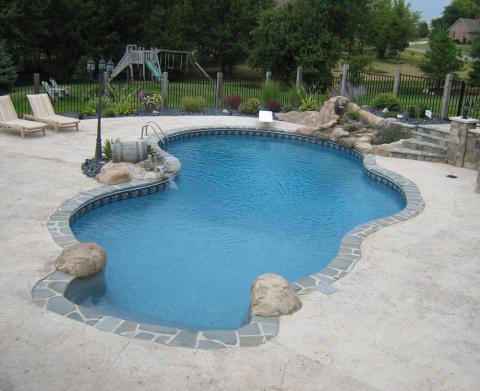Ask the Pool Guys tips for what not to do
Flooding is always a possibility, and it always comes at the most unexpected times. Its best to be prepared and have a plan of action should such a natural disaster occur.
Al Curtis from Ask the Pool Guy warns pool owners not to empty their pool water if flooding has occurred. “Pool shells act as a kind of boat when they are empty. If your surrounding soil is saturated due to flooding, the pool will have a tendency to float. This is bad because it can cause the pool shell to shift or even crack.”
All swimming pools, vinyl, fiberglass, or concrete, can float when empty. The upward pressure from the water under the pools surface can actually cause it to lift off the ground- you don’t want this.
Fortunately, most pools today are equipped with a hydrostatic relief valve in the floor of the pool which allows ground water to actually enter the pool; this keeps the equilibrium and relieves the pressure. There is always the possibility the valve could be faulty or not be able to handle the amount of pressure from the ground water. Due to this fact, it is always best to consult an experienced technician if you have to empty the pool.
“When you experience a flood, obviously the first priority is restoring your home not your pool. While this is viable, the pool can be hazardous if not taken care of properly. Flooded swimming pools present a unique set of hazards. They need to be assessed to ensure the condition of the pool is safe before starting any work,” says Al.
Simple Tips for Pool Owners of Flood-Affected Pools
- It is vital to make sure the fencing is intact to prevent children from having access to the pool. If you are unsure, check out the Pool Safety Council for guidelines.

- Completely secure and restrict access to that area if possible. This is especially important if fences have been damaged or there is dangerous debris.
- Do NOT empty your pool. As previously stated, emptying your pool can create a ‘boat’ like effect causing the pool to float on the groundwater. Experienced pool technicians should only empty the pool water when it is declared safe.
- Check your pump house and other structures. During floods wild animals sometimes find shelter in areas like this.
- Find a licensed electrician to check the circuits and electrical fittings of your pump.
- If your pool is full of water but is unable to be restored, check it frequently, daily if possible, for mosquitoes. If mosquitoes or larva is detected, talk to a pool technician about how to remove them. This can be a health concern and also a nuisance to you and your family.
- If your pool water begins to turn green, most likely and algae bloom is developing. This can cause further damage so it is important to consult a pool technician about this issue.
- Be sure to only turn your filter back on once water quality has been restored.
As always, safety first. If you are unsure how to handle a flood situation, call a professional!
